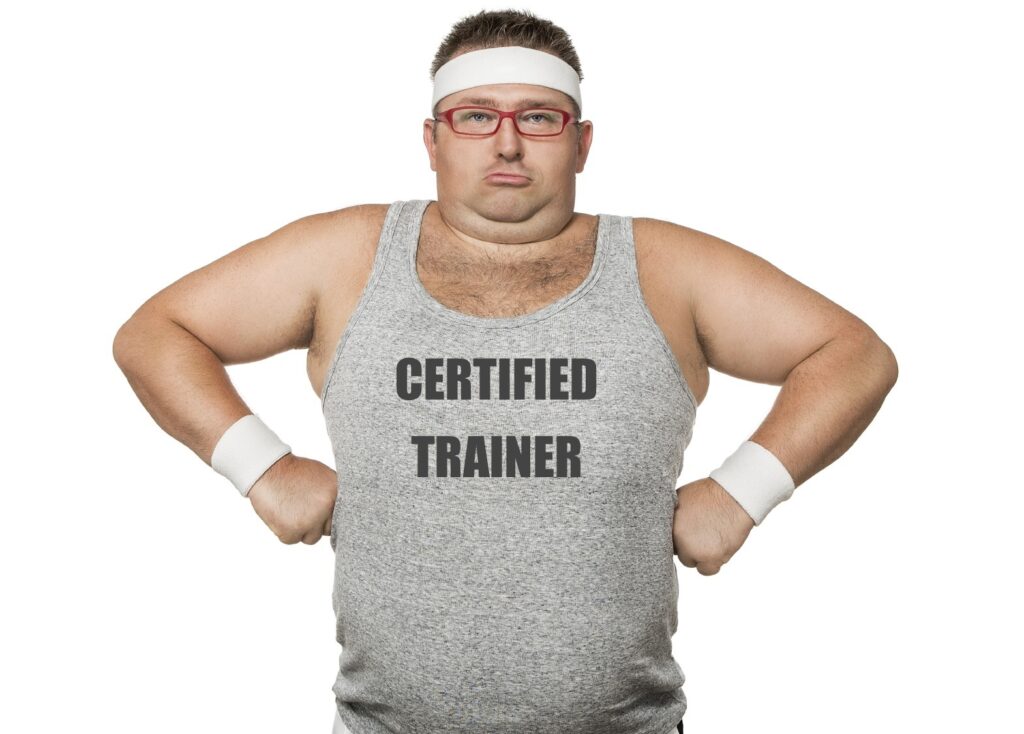Would you hire a fat personal trainer? If not why not?
In this post we discuss the biases that can lead to poor outcomes if you choose a trainer for the wrong reasons.

Have you ever noticed that people tend to look like their dogs?
Apparently this is now a scientific fact. Studies have shown we pick dogs with physical characteristics similar to our own.
So what do you look for when you choose a trainer?
I think many people either consciously or unconsciously, look for the physical attributes they’re hoping to gain.
If you want to build muscle for example, perhaps you choose the biggest trainer in the gym.
If you’re looking to lose weight, maybe you look for somebody who’s ripped.
And then there are the Instagram trainers with perfect butts, promising others they can help them achieve the same.
Is it knowledge or genetics?
Whenever we look at a person we often ascribe their physical attributes to knowledge and disregard the effect of genetics.
I’ve no doubt that trainers who have more muscle than the average person have worked hard, Is it the case however that others who work just as hard will look the same?
Likewise trainers with low body fat. If you follow the exact same diet will you look like them?
It’s not just the fitness industry
It might seem peculiar to the fitness industry that knowledge is bestowed on an individual based on a genetic gift.
There’s research to suggest humans do this all the time however.
Take beauty for example. Attractive people tend to be thought of as more intelligent, conscientious, with higher academic achievement.
This paper even suggests that our biases may over time lead this to be true.
Here’s the thing though, my guess is that the more important and measurable the result is, the less important someone’s appearance is if they can deliver it.
Sport is good example of this.
Sir Alex Ferguson is widely regarded as the most successful premier league manager of all time. That’s because he won 13 league titles in 21 seasons.
Although he was a footballer in his youth, he looks more like the kind of guy who could show you a good night out in his native Glasgow.
What about Sir Dave Brailsford? He’s credited with turning the U.K. into the most formidable force in world cycling. Sure he rode his bike as a youth but he wasn’t a professional.
What they both have in common (apart from their knighthoods) is a body of work that demonstrates their ability to coach elite performers to success.
The fact they don’t look like the people they coach is entirely irrelevant.
Summary
When choosing a trainer we seem particularly susceptible to biases that bestow a certain level of knowledge based on genetic gifts, rather than real know how.
Look past their physical appearance and instead look at their results over time.
How many people like you have they helped and what do those people say about working with them?
These are far better gauges than the size of their biceps or their washboard abs.